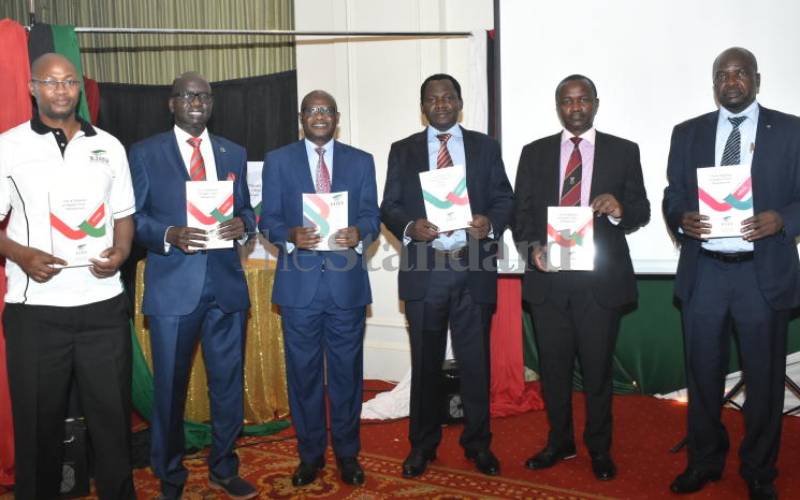×
The Standard e-Paper
Kenya’s Boldest Voice

From left: Kiseb Acting CEO Fred Ongisa, Kism)Chair John Karani, Caleb Ogot, Walubengo Wasike, Kism Acting CEO Martin Gachukia and Director Stanley Maindi. [Samson Wire. Standard].
When irregularities into the 2013 Sh26 billion laptop tender came to light, it was the procurement process that was in the spotlight.